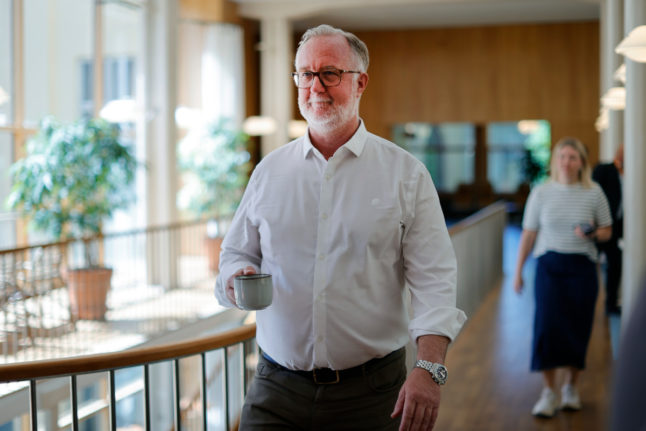The government expects GDP, one of the key indicators used to gauge the health of a country's economy, to grow by 2.6 percent this year, 2.1 percent next year and 2 percent in 2019.
“By pursuing a responsible fiscal policy since taking office, we have succeeded in bringing the huge public finance deficit we inherited back to surplus each year of this electoral period. This has placed us in an entirely new position and offers us new opportunities to meet social challenges. The Swedish model can continue to deliver,” said a confident finance minister before presenting the budget proposal to parliament.
Unemployment is expected to reach 6.6 percent this year and drop to 6.4 percent in 2018 and 6.3 percent the following year.
“Unemployment has fallen considerably since 2014 and is expected to continue to fall over the next few years. The employment rate of people aged 20-64 is now the highest ever recorded in the EU. Youth unemployment is the lowest in 13 years and long-term unemployment has fallen; Sweden now has the lowest long-term unemployment rate in the EU, together with Denmark,” said the finance ministry.
The budget surplus puts the centre-left Social Democrat-Green coalition government in a strong position ahead of Sweden's next general election in autumn 2018, said experts.
“It's good growth and that creates good conditions for the government. It could not have been better, and then you hand this out a little by little so that everyone is happy,” Annika Winsth, economist at Scandinavian banking giant Nordea, told the TT news agency.
Swedbank's economist Anna Breman echoed her comments. “There's a lot of election slogans,” she said. “Then there's focus on the labour market, knowledge, climate, equality and security.”
The centre-right opposition however accused the government of having too rosy an outlook. Jakob Forssmed of the Christian Democrats said the finance ministry was not doing enough to plug widening gaps in the labour market, where unemployment is growing among foreign-born and disabled people.
“The biggest gap is between those who have a job and those who do not, and that's why it is surprising that the government isn't doing more about it,” he said.
The Moderate Party's finance spokesperson Ulf Kristersson argued in a parliamentary debate on the budget that there could be trouble on the horizon. “It is not the government's tight, active finance policies that have led to better finances, but rather that we've gone from recession to an econonmic boom. If we were to get a new crisis, we would have dramatic deficits. Better savings are required during an economic boom.”
The key points in the government's spring budget proposal include more money for maternity care, mental health care for children, climate investments and the police, as well as higher taxes for those on medium and high incomes and lower taxes for pensioners.
The spring budget is an extension of the main autumn budget. In Sweden, all governments have the chance to revise their annual budget each spring, to adapt to events or economic changes that have emerged since the start of that year. It will need parliamentary approval.
READ ALSO: Five key points about Sweden's spring budget
READ ALSO: Funding boost won't save closed Swedish maternity ward



 Please whitelist us to continue reading.
Please whitelist us to continue reading.